Related Research Articles

Biogas is a gaseous renewable energy source produced from raw materials such as agricultural waste, manure, municipal waste, plant material, sewage, green waste, wastewater, and food waste. Biogas is produced by anaerobic digestion with anaerobic organisms or methanogens inside an anaerobic digester, biodigester or a bioreactor. The gas composition is primarily methane and carbon dioxide and may have small amounts of hydrogen sulfide, moisture and siloxanes. The methane can be combusted or oxidized with oxygen. This energy release allows biogas to be used as a fuel; it can be used in fuel cells and for heating purpose, such as in cooking. It can also be used in a gas engine to convert the energy in the gas into electricity and heat.

Biofuel is a fuel that is produced over a short time span from biomass, rather than by the very slow natural processes involved in the formation of fossil fuels such as oil. Biofuel can be produced from plants or from agricultural, domestic or industrial biowaste. Biofuels are mostly used for transportation, but can also be used for heating and electricity. Biofuels are regarded as a renewable energy source. The use of biofuel has been subject to criticism regarding the "food vs fuel" debate, varied assessments of their sustainability, and possible deforestation and biodiversity loss as a result of biofuel production.

The Kroger Company, or simply Kroger, is an American retail company that operates supermarkets and multi-department stores throughout the United States.
Enbridge Inc. is a Canadian multinational pipeline and energy company headquartered in Calgary, Alberta, Canada. Enbridge owns and operates pipelines throughout Canada and the United States, transporting crude oil, natural gas, and natural gas liquids, and also generates renewable energy. Enbridge's pipeline system is the longest in North America and the largest oil export pipeline network in the world. Its crude oil system consists of 28,661 kilometres of pipelines. Its 38,300 kilometre natural gas pipeline system connects multiple Canadian provinces, several US states, and the Gulf of Mexico. The company was formed by Imperial Oil in 1949 as the Interprovincial Pipe Line Company Limited to transport Alberta oil to refineries. Over time, it has grown through acquisition of other existing pipeline companies and the expansion of their projects.
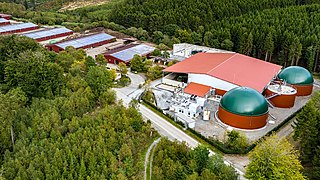
Anaerobic digestion is a sequence of processes by which microorganisms break down biodegradable material in the absence of oxygen. The process is used for industrial or domestic purposes to manage waste or to produce fuels. Much of the fermentation used industrially to produce food and drink products, as well as home fermentation, uses anaerobic digestion.
Renewable natural gas (RNG), also known as biomethane, is a biogas which has been upgraded to a quality similar to fossil natural gas and has a methane concentration of 90% or greater. By removing CO2 and other impurities from biogas, and increasing the concentration of methane to a level similar to fossil natural gas, it becomes possible to distribute RNG via existing gas pipeline infrastructure. RNG can be used in existing appliances, including vehicles with natural gas burning engines (natural gas vehicles).
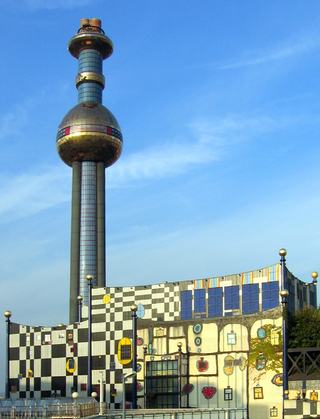
Waste-to-energy (WtE) or energy-from-waste (EfW) is the process of generating energy in the form of electricity and/or heat from the primary treatment of waste, or the processing of waste into a fuel source. WtE is a form of energy recovery. Most WtE processes generate electricity and/or heat directly through combustion, or produce a combustible fuel commodity, such as methane, methanol, ethanol or synthetic fuels, often derived from the product syngas.
A mechanical biological treatment (MBT) system is a type of waste processing facility that combines a sorting facility with a form of biological treatment such as composting or anaerobic digestion. MBT plants are designed to process mixed household waste as well as commercial and industrial wastes.
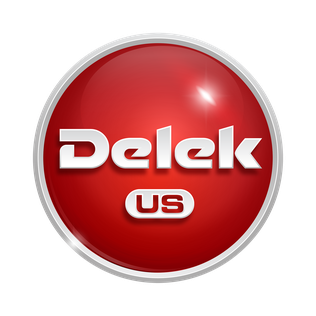
Delek US Holdings, Inc. is a diversified downstream energy company with assets in petroleum refining, logistics, asphalt, renewable fuels and convenience store retailing headquartered in Brentwood, Tennessee.

Hilmar Cheese Company is a cheese and whey products manufacturer headquartered in Hilmar, California, United States. The privately owned company has over 1000 employees and specializes in the mass production of a variety of soft and hard cheeses. As of 2011, Hilmar Cheese produced over two million pounds of cheese per day. The company's Hilmar, CA, facility produces more cheese per year from a single site than any other cheese manufacturer in the world.

Biodegradable waste includes any organic matter in waste which can be broken down into carbon dioxide, water, methane, compost, humus, and simple organic molecules by micro-organisms and other living things by composting, aerobic digestion, anaerobic digestion or similar processes. It mainly includes kitchen waste, ash, soil, dung and other plant matter. In waste management, it also includes some inorganic materials which can be decomposed by bacteria. Such materials include gypsum and its products such as plasterboard and other simple sulfates which can be decomposed by sulfate reducing bacteria to yield hydrogen sulfide in anaerobic land-fill conditions.

Red Food Stores, Inc. was a supermarket chain company headquartered in Chattanooga, Tennessee. It operated stores mostly in northwest Georgia, northeast Alabama, and southeast Tennessee. Around 55 stores were operated in the same three states. According to The Chattanoogan, Red Food was a longtime icon in Chattanooga history.

Republic Services, Inc. is a North American waste disposal company whose services include non-hazardous solid waste collection, waste transfer, waste disposal, recycling, and energy services. It is the second largest provider of waste disposal in the United States after Waste Management.
Plasma gasification is in commercial use as a waste-to-energy system that converts municipal solid waste, tires, hazardous waste, and sewage sludge into synthesis gas (syngas) containing hydrogen and carbon monoxide that can be used to generate power. Municipal-scale waste disposal plasma arc facilities have been in operation in Japan and China since 2002. No commercial implementations in Europe and North America have succeeded so far. The technology is characterized by the potential of very high level of destruction of the incoming waste, but low or negative net energy production and high operational costs.
Iona Capital Ltd is a fund management institution that specializes in the management of equity and debt investments for private and institutional clients. Its investment strategy focuses on seeking out promising start-up companies that align with the UK Government's goal of reducing waste sent to landfills. In addition to its environmental objectives, the company also places a significant emphasis on identifying and partnering with strong management teams.

Harvest Power, Inc. was a privately held organics management company headquartered in Waltham, Massachusetts, United States that specializes in converting food waste and yard waste into biofuel, compost, mulch and fertilizer. In 2014 Fast Company named it one of the most innovative companies in the world. In August of 2020 Harvest Power Orlando ceased operations for unknown reasons and all assets were put up for sale; the company was dissolved in April 2021.
Himark Biogas Inc. is a waste-to-energy technology and engineering services company. Himark's provides services such as licensing of patented anaerobic digestion technology, conducting feasibility studies, carrying out project design, providing support on engineering and construction, commissioning, and rescue and resuscitation of digesters.
Biogen (UK) Ltd is a leading UK owner and operator of anaerobic digestion and composting plants based in Bedfordshire. It is responsible for the construction of 22 plants to date and currently operates fourteen anaerobic digestion plants and six composting facilities in England, Scotland and Wales.
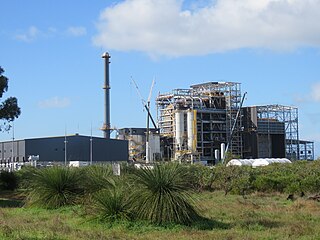
East Rockingham Waste to Energy is a waste-to-energy power station under construction located in East Rockingham, Western Australia. Once completed, the facility is scheduled to process in excess of 300,000 tonnes of waste and will produce 29 MW of power.
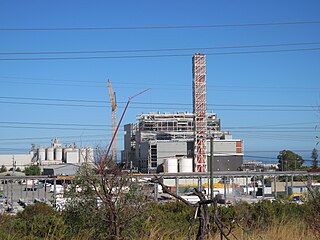
The Kwinana Waste to Energy Plant is a waste-to-energy power station under construction in Kwinana Beach, Western Australia. Once completed, the facility is scheduled to process in excess of 400,000 tonnes of waste and will produce 36 MW of power. Initially scheduled to open in 2021, delays pushed the projected date out to late 2024.
References
- ↑ Strailey, Jennifer (15 August 2023). "Transforming food waste to gains: A conversation with Divert CEO Ryan Begin". ThePacker. Retrieved 28 May 2024.
- 1 2 3 Pressman, Aaron (24 October 2022). "Concord startup is diverting supermarket food waste to generate clean power". The Boston Globe, accessed via chlpi.org. Retrieved 28 May 2024.
- ↑ "Ryan Begin". Forbes. Retrieved 28 May 2024.
- ↑ "No Time to Waste, featuring Nick Whitman '97". Middlebury Magazine. 10 January 2024. Retrieved 28 May 2024.
- 1 2 Brody, Liz (November 22, 2022). "A Machine That Turns Rotten Groceries Into Energy? Meet the Guys Making Waste Useful". Entrepreneur. Retrieved 28 May 2024.
- 1 2 "Divert, Inc. Announces Harrison, Ohio, as the Site of a Future Integrated Diversion & Energy Facility". Redi Cincinnati. 20 May 2024. Retrieved 28 May 2024.
- 1 2 "Company that transforms discarded food into energy looking at Jacksonville". Jacksonville Daily Record. 22 January 2024. Retrieved 28 May 2024.
- ↑ Cabrey, Erin (16 February 2023). "How Divert has helped save 220,000 tons of waste from retailers". Retail Brew. Retrieved 28 May 2024.
- ↑ Gallerani, Kathryn. "New food waste limits have businesses scrambling. This Freetown facility is here to help". SouthCoast Today. Retrieved 28 May 2024.
- ↑ Vinoski, Jim (19 October 2022). "With New BP Deal, Divert Steps $175 Million Closer To Solving The Wasted Food Problem". Forbes . Retrieved 28 May 2024.
- ↑ Perez, Miranda (25 August 2022). "Divert Is Actively Hiring Amid Growing Demand for Its Food Waste Tech". Builtinboston.com. Retrieved 28 May 2024.
- ↑ "Divert, Inc. Announces Transformative $1 Billion Infrastructure Development Agreement With Enbridge Inc., Solidifying its Leadership in Solving the Wasted Food Crisis". Tmcet.com. 1 March 2023. Retrieved 28 May 2024.
- ↑ "Nicholas Bertram". Forbes Business Council. Retrieved 28 May 2024.
- ↑ Groom, Nichola (1 March 2023). "Enbridge commits $1 billion to company turning food waste to energy". Reuters. Retrieved 28 May 2024.
- ↑ "Converting wasted food into renewable energy". Wall Street Journal via Enbridge.com. Retrieved 28 May 2024.
- ↑ Orland, Kevin (1 March 2023). "Enbridge Eyes $1 Billion in Food-Waste-to-Gas Projects". Bloomberg . Retrieved 28 May 2024.
- 1 2 Correa, Christopher (29 April 2023). "Breaking ground in Turlock". Turlock Journal. Retrieved 28 May 2024.
- ↑ Gaetjens, Bob (11 September 2023). "Divert breaks ground on Washington renewable energy facility". Waste Today Magazine. Retrieved 28 May 2023.
- ↑ "The world needs to embrace a suite of solutions": Divert on food waste and climate change". Future Power Technology. 12 April 2023. Retrieved 28 May 2024.
- ↑ "Major Grocery Retailer Leverages Divert's RFID Tracking and Technology, Sees 9% Reduction in Wasted Food". Divertinc.com. Retrieved 28 May 2024.
- ↑ "The world needs to embrace a suite of solutions": Divert on tackling food waste and climate change". Power-technology.com. 16 May 2023. Retrieved 28 May 2024.
- 1 2 Paisley, Daisy (8 February 2024). "Divert, Inc.: Pioneering the fight against food waste and bolstering sustainability". Noah News. Retrieved 28 May 2024.
- ↑ "CEO of company focused on reducing food waste to headline OPS 2023". Organicgrower.info. Retrieved 28 May 2024.
- ↑ Brody, Liz (22 November 2022). "A Machine That Turns Rotten Groceries Into Energy? Meet the Guys Making Waste Useful". Entrepreneur.com. Retrieved 28 May 2024.
- ↑ "Giant Food and Divert, Inc. Process 30.8 Million Pounds of Wasted Food in First Year of Collaboration". Waste360.com. 26 July 2023. Retrieved 28 May 2024.
- ↑ Strailey, Jennifer (25 July 2023). "Giant Food and Divert process 30.8 million pounds of wasted food". ThePacker. Retrieved 28 May 2024.
- ↑ "How One Food Bank is Sourcing Hard-to-Find Food". Foodbanknews.org. 21 April 2023. Retrieved 28 May 2024.
- ↑ "Divert, Inc. Releases Statement Supporting the Biden-Harris Administration's Initiative to Take Action on the Hunger Crisis and Food Insecurity". Associated Press. 28 September 2022. Retrieved 28 May 2024.
- ↑ "This vacant Turlock field soon will turn food waste into renewable energy for homes". The Modesto Bee. 27 April 2023. Retrieved 28 May 2024.
- 1 2 "How One Food Bank is Sourcing Hard-to-Find Food". Foodbanknews.org. 21 April 2023. Retrieved 28 May 2024.
- ↑ "How we're investing in our planet". CVS Health. 19 April 2023. Retrieved 28 May 2024.
- ↑ Gonzalez, Aaron (1 April 2024). "Kroger marks Earth Month with sustainability initiatives". ThePacker. Retrieved 28 May 2024.